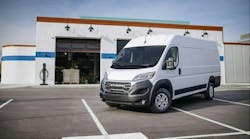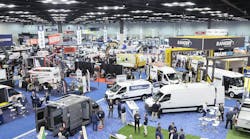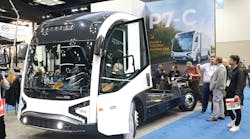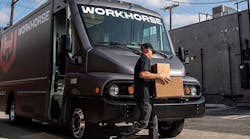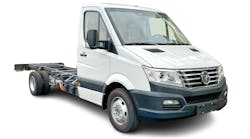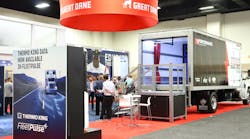E-commerce retailers may have defused the minimum wage controversy. How? By creating thousands of new jobs that require minimal skills but that pay more than minimum wage.
In the world of e-commerce, the customer triggers the process by placing an order. The process typically ends with the order being delivered to the customer’s mailbox or front door. Somewhere in between, a member of a vast army of “pickers” grabs the product from a shelf and prepares it for shipping. Soon after that, the product goes inside a truck body or trailer for a multi-stop trip to the customer.
North America used to have plenty of people who were more than happy to pick products for any of a number of giant retailers. But the growing demand for buying stuff online has spawned a boom in warehouse construction, and with that comes a shortage of pickers. Eventually automated systems will do these jobs. But for right now, e-retailers can’t hire enough—even with pay and perks that are well above minimum wage. Making the shortage more acute is that e-commerce fulfillment centers require as much as three times more workers as traditional warehouses.
According to The Wall Street Journal, warehouse workers earned $12.50 an hour in February. Earnings for this job grew more than twice the average of the nation as a whole.
So what? Why should this matter to the commercial truck and trailer industry? It’s just one ripple effect, one more reminder of how e-commerce is changing a large swath of the economy, including truck bodies and trailers.
It probably doesn’t affect you much if you only sell dump bodies or heavy-hauler trailers. But if you sell vans, there is a good chance that your customers and the customers of your customers are facing some significant changes in where, how, when, and at what cost goods are shipped to the consumer.
The people we have talked to who sell commercial vehicles to these customers wonder if fast and free delivery is a sustainable business model. But if e-retailers are going to be able to continue offering it, each link in the distribution part will be pressured to wring time and cost out of the system.
It’s why those warehouses are being built—to get them closer to the customers who buy them. It’s why those thousands of stock pickers are being hired. It’s why traditional trucking companies are offering unconventional transportation services. And it’s why truck body and trailer manufacturers are offering new products for this market.
Some of those ideas have been showing up at truck-related trade shows the past few months. Some were on display at the recent TMC (see our coverage in last month’s issue – New trailers debut at Technology & Maintenance Conference). Even more ideas were evident at last month’s Work Truck Show. (See our show coverage in this month’s issue – ‘Energy’ invigorates Work Truck Show). The last of our spring trade show coverage is coming next month.
We were struck by the number of exhibitors with products designed for the “final mile” deliveries that e-retailers require. Were they everywhere? Of course not. Final mile service is simply a niche, and it is not for everyone. But it was evident in talking to the exhibitors that many companies either have developed products as a result of this market or are in the process of determining what their strategy should be.
Based on our conversations over the past few months (see story in this month’s issue – How the shipping model of e-commerce is impacting truck body and trailer manufacturers), truck body and trailer manufacturers see plenty of uncertainties with selling equipment to this market. Things are changing constantly, but this type of retaining is here to stay.
And why not? We have grown up with a system that requires us to go to a store, load our purchases in our car. We also have grown accustomed to dwindling service from the companies to whom we hand over our money. We check our own grocery purchases and bag our own groceries. We do business with automated teller machines instead of human beings. When we fly, we put baggage tags on our own suitcases and lug our bags over to the conveyor belt—and paying the airline for the privilege.
Over the past few years, retailers have been able to make their customers take over tasks that had been the vendor’s responsibility. With final mile services, the customer turns the tables. Isn’t it refreshing that some of the retailers we do business with take our stuff home for us? And for free? Do we really want to go to the store and drive our stuff home?
It makes sense that final mile delivery is here to stay and that the family station wagon will be spending more time in the garage. Will something you manufactured deliver the goods instead? ♦
